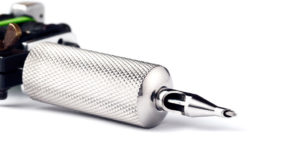When people think of sleep, two thoughts usually spring to mind; we need eight hours of sleep per night, and most people don’t get enough of it. While this lack of sleep can often be blamed on hectic and work-filled schedules, many cases involve a more serious condition known as insomnia. While this medical condition can be troublesome, there are natural remedies and techniques you can use to get more shuteye during the overnight hours.
Far from being a rare sleeping disorder, insomnia affects roughly one-third of all adults worldwide. Insomnia’s widespread reach is likely due to its many triggers; insomnia can be caused by general stress, stress about sleep, wild fluctuations in temperature, surrounding noises, side effects from medication, hormones, and disruptions in healthy sleeping patterns. Oftentimes, excessive amounts of caffeine, alcohol and cigarettes can lead to insomnia, or worsen existing cases of the condition. And while you might enjoy afternoon naps, they could have serious consequences for your nighttime sleeping schedule.
Lifestyle Changes for Additional Z’s
Like numerous medical afflictions, insomnia can be successfully treated with common-sense adjustments to your daily routine. First, try to create a daily evening routine before going to bed. This can include activities such as taking warm baths or quick walks. It can also be helpful to adhere to a strict seven-day schedule for both going to bed and waking up. Research has also shown that regular exercise (especially earlier in the day) can make it easier for you to fall asleep. A consistent lack of sleep can also be linked to dietary habits. If you often drink caffeinated beverages well into the afternoon, you may find yourself struggling to fall asleep at night. In addition, avoid eating large meals right before bedtime.
Since anxiety about sleep can lead to insomnia, it is best to not dwell on any problems involving sleep. If you find yourself feeling sluggish during the day, it is perfectly fine to recharge your body with afternoon naps, so long as these naps do not exceed twenty minutes. You can also better prepare your body for sleep by dimming the lights in your bedroom and/or house for about an hour before bedtime. If this bothers others in your household, you achieve the same effect of dim lights by wearing sunglasses.
The Afternoon Grind
We’ve all felt it – as the afternoon slowly crawls along, you start to feel like you’re running low on gas; you start yawning, have trouble concentrating, and might even struggle to stay awake. Of course, this lack of energy only makes getting your work done even tougher. While it may be tempting to sleep for a few hours, this will only come back to haunt you when you try to fall back asleep at night. Furthermore, dropping everything for a few hours sleep isn’t really a practical option during a busy workday.
If you frequently fall victim to afternoon slowdowns, try giving these energy boosting tips a try:
Exercise during the day – In addition to burning calories and building muscle, exercise can also give you a burst of energy.
Have a Balanced Midday Meal – Eating a lunch heavy in carbohydrates can leave you feeling sleepy all afternoon. To prevent this from happening, add some protein to your lunch.
Pass on the Candy Bars – Candy bars and other sugar-heavy processed foods may give you an initial rush of energy, but the ensuing crash can derail the rest of your afternoon.
Talk a Walk – If you feel the urge to take a snooze at your desk, try getting up and going for a quick walk around the office instead. Short walks get your blood flowing and provide a spark of energy.
Don’t Overdo the Coffee – The same drink that gets you going in the morning can make you dead tired in the afternoon. It’s best not to have more than a few cups of coffee, or to opt for ginseng tea instead.
The Herbal Route
If you’re wondering whether there are herbal treatments for insomnia, you’re in luck – there are a number of herbs that you can use to get to sleep. Magnesium, for instance, can help those with low magnesium levels treat and reduce fatigue. Eleuthero ginseng and Cordyceps mushrooms can stimulate the mind and boost physical endurance. Coenzyme Q10 increases the energy output from your body’s cells, while Ashwagandha is well-known as a potent stress-reliever.
Insomnia is a problem that can literally keep you up at night. Through a combination of proper diet, lifestyle changes and herbs, you can give yourself a better shot at getting good night’s rest.
 Natural Knowledge 24/7 Educate yourself with nutrition, health and fitness knowledge.
Natural Knowledge 24/7 Educate yourself with nutrition, health and fitness knowledge.






